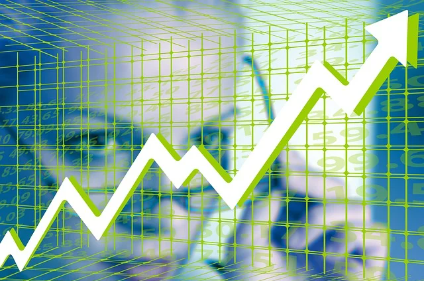현재 장바구니가 비어 있습니다!

[2024-08-07 Korea Economic News] Bank of Korea Reports Record High Current Account Surplus in June Driven by Strong Semiconductor Exports
Korean Economy: Current Account Surplus Hits Record High
The Bank of Korea recently announced that in June, the country recorded a current account surplus of $12.26 billion (approximately 16.89 trillion KRW). This marks the largest surplus in nearly seven years, specifically since September 2017. Let’s delve deeper into the factors contributing to this remarkable achievement in the Korean economy.
![[2024-08-07 Korea Economic News] Bank of Korea Reports Record High Current Account Surplus in June Driven by Strong Semiconductor Exports](https://walterlog.net/wp-content/uploads/2024/08/1699579583.359531-1.png)
Current Account Surplus: A Key Indicator of Economic Strength
The current account surplus is a crucial economic indicator that reflects a country’s trade balance, earnings on investments, and transfer payments. For Korea, the strong surplus seen in June can be attributed mainly to an impressive boom in exports, particularly in the semiconductor sector. Exports surged by nearly 9%, showcasing the growing demand for Korean technology, which remains one of the pillars of the national economy.
This increase in exports, especially in semiconductors, has been essential for Korea’s economic resilience. The global technology boom has allowed Korean companies to capture a significant share of the market, driving production and sales. Moreover, this trend emphasizes Korea’s role as a critical supplier in the global electronics supply chain, further solidifying its position in the international economic landscape.
![[2024-08-07 Korea Economic News] Bank of Korea Reports Record High Current Account Surplus in June Driven by Strong Semiconductor Exports](https://walterlog.net/wp-content/uploads/2024/08/1700288434.5427742-1.png)
Import Trends: A Decline in Consumer Goods
On the flip side, while the exports have surged, imports have seen a different trend. In June, imports fell by approximately 6%, primarily due to decreased demand for consumer goods. This decline could be indicative of shifting consumer behaviors, as more individuals focus on saving rather than spending on non-essential items. The shifts in import volumes can also be linked to global supply chain disruptions and changing economic conditions, influencing purchasing decisions across various sectors.
The significant dip in imports aligns with the current economic climate in Korea, where consumers are becoming more cautious. The Korea Economic News reports that this trend is being monitored closely, as it provides insight into consumer confidence and future spending trends. The relationship between exports and imports is crucial for understanding the overall economic health of the nation.
![[2024-08-07 Korea Economic News] Bank of Korea Reports Record High Current Account Surplus in June Driven by Strong Semiconductor Exports](https://walterlog.net/wp-content/uploads/2024/08/1699579611.81201-3.png)
The Role of Technology and the Semicon Industry
Korea’s semiconductor industry has been a pivotal driver of economic growth, and its performance is crucial in balancing the current account. The reliance on semiconductor exports has helped to cushion the economic impact of fluctuations in other sectors. As noted by the Bank of Korea, advancements in chip technology and the increasing global demand for electronics have contributed significantly to the robust export figures in recent months.
As outlined in Korea Economic News, the semiconductor industry not only brings in substantial revenue but also positions Korea as a key player in the global tech industry. Companies like Samsung and SK Hynix are at the forefront, pushing innovation and catering to ever-growing global demands.
Implications of the Surplus on Future Economic Stability
The current account surplus is not just a number; it signifies a broader economic narrative. A sustained surplus can strengthen the Korean won and enhance investor confidence, attracting foreign investments. A stronger currency can positively impact the economy by lowering import prices, although it may also challenge export competitiveness in the long run.
The surplus reflects Korea’s ability to adapt and excel in the face of global challenges. The Bank of Korea’s proactive policies and the resilient nature of the semiconductor industry are instrumental in maintaining this economic climate. However, ongoing vigilance is necessary to navigate potential future fluctuations in both global demand and supply chain dynamics.
As reported by Korea Economic News, the outlook for the Korean economy remains cautiously optimistic. The surging exports and reduced imports indicate a possible shift towards a more balanced economic environment, though global uncertainties persist.
![[2024-08-07 Korea Economic News] Bank of Korea Reports Record High Current Account Surplus in June Driven by Strong Semiconductor Exports](https://walterlog.net/wp-content/uploads/2024/08/1699579611.2388976-3.png)
Conclusion: Looking Ahead
In conclusion, the Bank of Korea’s report on the current account surplus showcases a vital aspect of the nation’s economic landscape. The performance of exports, particularly in semiconductors, coupled with a reduction in imports, are pivotal signs of a recovering economy. As Korea continues to navigate these challenges and leverage its strengths, it stands poised for future economic growth and stability.
For more insights and updates on the Korean economy, stay connected with trusted sources like Korea Economic News. The dynamics of the current account surplus provide a window into the strengths and potential challenges that lie ahead for Korea’s economic future.
To explore more information, visit https://walterlog.net for comprehensive updates and analyses.